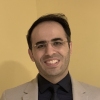The US has long navigated difficult choices in the Middle East, often allying with imperfect actors to achieve broader strategic goals. The most recent case is direct engagement with Hayat Tahrir al-Sham (HTS) to undermine the Assad regime in Syria.
With Iran remaining one of Washington’s primary challenges in the region, a similar intervention involving an opposition with a different mindset could serve the US and Israel’s interests in pursuing regime change.
Ethnic and national groups, particularly the Kurds, have played a central role in challenging Tehran’s authority and legitimacy. The Kurdish population – estimated at over 12 million – has long faced systemic discrimination, cultural erasure, and military crackdowns. Since the Islamic Republic’s founding in 1979, Kurdish parties have resisted the regime’s policies while advocating for autonomy, democratic governance, minority rights, and independence as championed by the Kurdistan Freedom Party (PAK). Iranian forces regularly target Kurdish regions in Western Iran (Rojhilat, or Eastern Kurdistan, as Kurds call it), both militarily and economically.
Aligning with Those Who Share Principles of Governance and Inclusivity
For Washington, the Kurdish opposition represents a unique opportunity to weaken the Iranian regime while aligning with actors who share key principles of governance and inclusivity. Iran’s Kurdish opposition is secular, rooted in decades of political organization, and aligned with democratic ideals. Supporting Kurdish opposition could force the Iranian regime to divert resources domestically, limiting its ability to project power in Syria, Iraq, Lebanon, and Yemen. Kurdish groups have avoided ties to extremist ideologies, focusing instead on democratic self-determination. Moreover, strengthening Kurdish forces in Iran could complement US support for Kurds in Iraq and Syria, creating a broader regional counterweight to terrorism and extremism.
US funds could support Kurdish media networks, both in its diaspora and within Kurdish regions in Iran. Additionally, covert support for Kurdish forces could include intelligence-sharing, surveillance technologies, and tactical advice to help the Kurds defend themselves against the regime’s military crackdowns, all without direct US military involvement.
However, the logistical challenges in the strategy of supporting Kurds in Iran are considerable. Rojhilat is not easily accessible, especially given Tehran’s military presence and control. There is no established Kurdish governance such as the Kurdistan Regional Government (KRG) in Iraq, which could facilitate the transit of resources or provide a base for US support. The US would need to work covertly through the Kurdish diaspora and the KRG, to circumvent logistical obstacles. While direct military intervention remains impractical, intelligence-sharing and humanitarian aid can still be impactful.
The Syrian experience underscores three key lessons: First, the West’s adversaries are often not as strong as they appear. Second, weakening authoritarian regimes often requires engagement with opposition forces, however imperfect. Third, the long-term risks of empowering extremist actors can undermine the very goals they are meant to achieve.
It is a fact that Kurds in Iran have never received significant support for structural reform or the extension of democratic processes, either from the failed Iranian opposition or Western sources. Supporting Kurds in Iran represents an opportunity for the US to weaken Tehran’s influence. This is not to suggest that Kurdish forces alone could topple the regime or reshape Iran’s future. However, as part of a broader US strategy, engaging with the Kurds offers a pragmatic alternative to the extremist compromises seen in Syria. The Kurdish opposition challenges Tehran’s authoritarian grip while offering a more credible, democratic vision for the country’s future. With Trump’s maximum pressure policy on Iran returning, it presents an opportunity worth considering.







